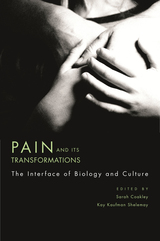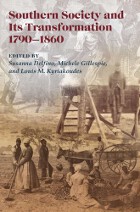
Pain is immediate and searing but remains a deep mystery for sufferers, their physicians, and researchers. As neuroscientific research shows, even the immediate sensation of pain is shaped by psychological state and interpretation. At the same time, many individuals and cultures find meaning, particularly religious meaning, even in chronic and inexplicable pain.
This ambitious interdisciplinary book includes not only essays but also discussions among a wide range of specialists. Neuroscientists, psychiatrists, anthropologists, musicologists, and scholars of religion examine the ways that meditation, music, prayer, and ritual can mediate pain, offer a narrative that transcends the sufferer, and give public dignity to private agony. They discuss topics as disparate as the molecular basis of pain, the controversial status of gate control theory, the possible links between the relaxation response and meditative practices in Christianity and Buddhism, and the mediation of pain and intense emotion in music, dance, and ritual. The authors conclude by pondering the place of pain in understanding--or the human failure to understand--good and evil in history.

The nine essays that comprise Southern Society and Its Transformations explore new territory in the study of the slave-era South, conveying how modernization took shape across the region and exploring the social processes involved in its economic developments. The book is divided into four parts, each analyzing a different facet of white southern life. The first outlines the legal dimensions of race relations, exploring the effects of lynching and the significance of Georgia’s vagrancy laws. Part II presents the advent of the market economy and its effect on agriculture in the South, including the beginning of frontier capitalism. The third section details the rise of a professional middle class in the slave era and the conflicts provoked. The book’s last section deals with the financial aspects of the transformation in the South, including the credit and debt relationships at play and the presence of corporate entrepreneurship.
Between the dawn of the nation and the Civil War, constant change was afoot in the American South. Scholarship has only begun to explore these progressions in the past few decades and has given too little consideration to the economic developments with respect to the working-class experience. These essays show that a new generation of scholars is asking fresh questions about the social aspects of the South’s economic transformation. Southern Society and Its Transformations is a complex look at how whole groups of traditionally ignored white southerners in the slave era embraced modernizing economic ideas and actions while accepting a place in their race-based world. This volume will be of interest to students of Southern and U.S. economic and social history.
READERS
Browse our collection.
PUBLISHERS
See BiblioVault's publisher services.
STUDENT SERVICES
Files for college accessibility offices.
UChicago Accessibility Resources
home | accessibility | search | about | contact us
BiblioVault ® 2001 - 2024
The University of Chicago Press









